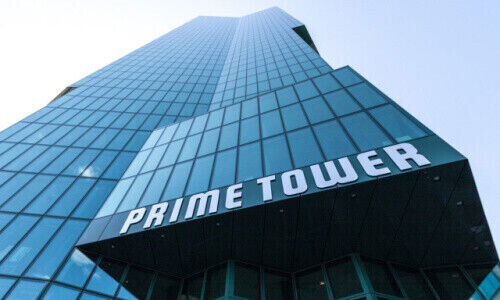Crisis of Confidence Fells Another Swiss Flagship Company
GAM has at least one thing in common with Credit Suisse. Both companies lost so much trust that in the end, the only option left was to sell.
GAM, too, will soon be history. If investor group «NewGAMe» shareholders don't foment a revolt and the owners of its British buyer don't reject the deal, the Zurich-based asset manager will go to competitor Liontrust. The GAM brand will also disappear, as finews.com reported Thursday.
Billions More Flow Out
Figures reported on Thursday by GAM show its financial situation took another turn for the worse last year. Once Europe's largest fund manager, the firm booked a net loss in 2022 that was more than ten times its loss the previous year, although it was mainly due to extraordinary factors. During the first three months of this year, assets under management fell by a third as clients kept withdrawing substantial funds from the firm.
That affected revenues and cash flow and had dramatic consequences on liquidity. Buffers were in place, but due to the regulatory liquidity requirements for various funds, the company's maneuvering room was limited.
«The liquidity situation has been tight of late,» a spokeswoman described the situation to finews.com upon request. As part of the acquisition, Liontrust is granting GAM two credit facilities totaling up to 17.8 million pounds, or the equivalent of around ($22.3 million) to bolster liquidity.
Positive Track Record
Liquidity problems resulting in a sale is something GAM has in common with Credit Suisse, which had to be taken over by rival UBS in March. In terms of its business model, the much smaller and highly specialized asset manager can hardly be compared with Switzerland's second-largest universal bank. Nevertheless, it is notable both companies had successful operating units until the end but were unable to overcome a general crisis of confidence.
On Thursday, GAM pointed to its recent strong investment performance, where 91 percent of assets under management in its investment management division outperformed their benchmark in the three years to March. In almost every case, that is what you want to hear from an active money manager. Still, for GAM it wasn't enough. It needs a fresh start under a new name.
Greensill Stumbling Block
«The purpose of the merger with Liontrust is to restore client confidence in GAM's funds and to create an environment for fund managers to operate successfully,» the spokeswoman said.
The crisis of confidence at GAM shares an origin story with Credit Suisse. GAM was embroiled in turmoil surrounding supply chain financier Greensill Capital even before Credit Suisse. After the suspension of a prominent fund manager, the company remained battered, clients withdrew billions of dollars in funds and GAM's share price plummeted. CEO Alex Friedman later resigned.
UBS Tasked with the Sale
GAM never recovered from those setbacks even after drastic turnaround measures under CEO Peter Sanderson. Its share price fell more than 95 percent since the start of 2018, and major shareholders such as Bantleon reduced their exposure. The company's results were a recurring disappointment to stakeholders. And in 2022, the group asked UBS to help it with a sale.
After exactly 40 years of illustrious history, GAM's roots go back to the hedge fund specialist Global Asset Management founded by Gilbert de Botton in 1983. Now the name will disappear from the industry ledger.




























